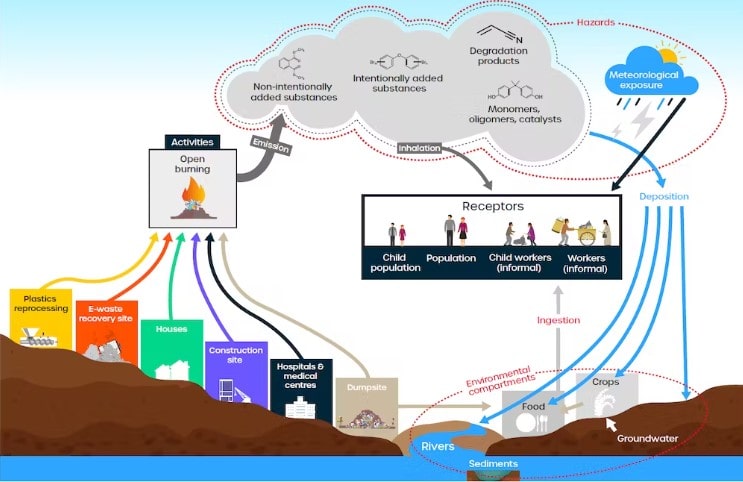Garbage burning generates harmful chemicals into the air, soil, and water, putting our health and the environment at risk. Choose proper waste disposal methods such as reusing materials, and using designated waste bins instead. Recycling reduces landfill waste, conserves resources, and reduces pollution. Organic waste composting produces nutrient-rich soil. Recycling of waste makes sure responsible disposal, maintaining ecosystems, and protecting human health. We contribute to a cleaner, healthier planet for current and future generations by using environmentally friendly recycling methods.
Why Don't Burn Garbage
Burning garbage releases harmful toxins into the air, soil, and water. This practice contributes to air pollution, the release of greenhouse gases, and human and environmental health risks. It releases toxic chemicals, heavy metals, and particulate matter, all of which can cause breathing problems, cancer, and other serious illnesses. Also, waste burning undermines recycling efforts and sustainable waste management practices. Proper waste disposal methods, such as recycling, composting, and landfilling with controlled release of gases, are vital to protecting our health and the well-being of the planet.
